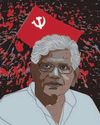Can, or rather should, India break the Indus Water Treaty to hit back at Pakistan?

On November 20, 1960, Prime Minister Jawaharlal Nehru told Parliament that he had purchased peace with the Indus Water Treaty (IWT). He knew the treaty was more give than take, but it was a small price to pay for getting peace in return. Fifty-six years later, Prime Minister Narendra Modi called a meeting of top officials to discuss how India could wrench back peace using the same treaty, which so far has been generously ensuring life-sustaining water to Pakistan. The message is that a non-violent offensive could be a payback in water, or rather, without it.
Within a day of declaring that “blood and water cannot flow together”, India said it would review the most favoured nation (MFN) status given to Pakistan. It also decided not to attend the South Asian Association of Regional Cooperation (SAARC) meet to be held in Islamabad in November.
Bangladesh, Bhutan and Afghanistan, too, dashed off their regrets to Nepal, the current SAARC chair. Bangladesh cited the “growing interference in the internal affairs of Bangladesh by one country”, Bhutan mentioned escalation of terrorism in the region, while Afghanistan said its leader Mohammad Ashraf Ghani was fully engaged in “dealing with violence as a result of imposed terrorism on his country”.
The MFN review is not likely to cause much flutter, given that it was lip service anyway. However, the three steps together show an energy at hitting back at Pakistan with a multi-pronged non-war offensive; the support of other SAARC nations is certainly a boost for India. Pakistan has responded to India’s refusal to attend SAARC by saying that “India has been perpetrating and financing terror in Pakistan’’.
This story is from the October 9, 2016 edition of THE WEEK.
Start your 7-day Magzter GOLD free trial to access thousands of curated premium stories, and 9,000+ magazines and newspapers.
Already a subscriber ? Sign In
This story is from the October 9, 2016 edition of THE WEEK.
Start your 7-day Magzter GOLD free trial to access thousands of curated premium stories, and 9,000+ magazines and newspapers.
Already a subscriber? Sign In

Themes Of Choice
As Savvy Investors Seek New Avenues, Thematic Mutual Funds Are Gaining Popularity

A golden girl
One of India's most formidable beauties passed away earlier this month. The odd thing is she would absolutely hate this obituary; she hated being written about and avoided publicity for all of her nine decades. Indira Aswani was 93 when she died. But anyone who encountered her, even briefly, was in such awe of her grace and poise, and one could not but remember her forever.

The interest in wine is growing delightfully in India
The renowned British wine writer and television presenter Jancis Robinson, 74, recently came to Delhi and Mumbai to reacquaint herself with India's wine industry. This was the Robinson's fourth visit to India; the last one was seven years ago. On this trip, Robinson and her husband, restaurateur Nicholas Lander, were hosted by the Taj Hotels and Sonal Holland, India's only Master of Wine.

United in the states
Indian-Americans coming together under the Democratic umbrella could get Harris over the line in key battlegrounds

COVER DRIVE
Usage-driven motor insurance policies offer several benefits

GDP as the only measure of progress is illogical
Dasho Karma Ura, one of the world's leading happiness experts, has guided Bhutan's unique gross national happiness (GNH) project. He uses empirical data to show that money cannot buy happiness in all circumstances, rather it is family and health that have the strongest positive effect on happiness. Excerpts from an interview:

India is not a controlling big brother
Prime Minister Tshering Tobgay considers India a benevolent elder sibling as the \"big brotherly attitude\" is happily missing from bilateral ties. He thinks the relationship shared by the two countries has become a model of friendship not just for the region, but for the entire world. \"India's attitude is definitely not of a big brother who is controlling and does not allow the little brother to blossom and grow,\" says Tobgay in an exclusive interview with THE WEEK.

Comrade with no foes
Lal Salaam, Comrade Yechury-you were quite a guy!

Pinning down saffron
In her first political bout, Vinesh Phogat rides on the anti-BJP sentiment across Haryana

MAKE IN MANIPUR
Home-made rockets and weapons from across the border are escalating the conflict